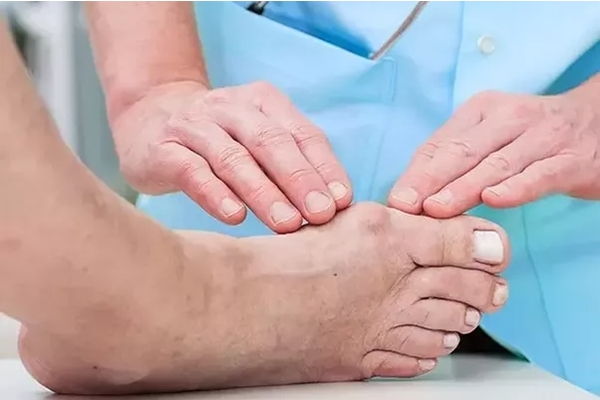



|
Tweet
Pin
It
|
Rheumatology is a subspecialty of internal medicine concerned with diagnosis, identification and medication of disorders relating to joints and adjourned tissues. Thus it is the specialty of medicine dedicated to disorders of the musculoskeletal system. In Rheumatology, patients of all age group are treated as Rheumatic Diseases are one of the commonest cause of physical impairment in the community. A Rheumatologist is a physician who specializes primarily in treating patients with diseases affecting their joints.
Rheumatologists cure the disorders related to joints, muscles, bones, and tendons. They also treat ailments, which can result in inflammation, pain, and swelling or any other situation in which immune system has been distorted. Though Rheumatology, Clinical Immunology and Allergy go hand in hand as one division of the Internal Medicine department in hospitals, the training and theory for the streams are different and does not go together. Diseases treated by Rheumatologists include rheumatoid arthritis, Osteoarthritis, fibromyalgia, gout, lupus, back pain, osteoporosis and tendonitis. Many Rheumatologists conduct research to determine the cause of and better treatments for these disabling and sometimes fatal diseases. They act as consultants to other physicians in the diagnosis and management of these diseases.
Often patients are referred to a Rheumatologist by a general physician. Rheumatologists opt for numerous diagnostic methodologies including laboratory tests of the rheumatic system, x-rays, and chemical pathology in order to identify the problem. Rheumatologists generally work along with Orthopaedic surgeons, physiotherapists, occupational therapists, Prosthetists, Orthotists and podiatrists.
Unlike many other medical specialties, Rheumatology essentially depends upon intensive clinical approach and tools to diagnose and monitor serious disorders. Any internist keen to pursue Rheumatology would be expected to be have acquired adequate basic clinical knowledge during the post graduate training and should be able to seamlessly further clinical skills required for practice of rheumatology and in particular management of serious multisystem rheumatology disorders.
Educational
To pursue Rheumatology, one needs a strong background in Physics, Chemistry, Biology and Mathematics. Like any other physician, Rheumatologists too require a long period of medical training. After 10+2 one has to apply to medical colleges to pursue MBBS degree, admission to which is based on scores of entrance test and marks of plus two. MBBS is a 5½ years course which includes one-year internship period as well.
After MBBS degree one has to go for M.D. (Medicine) as Rheumatology is a branch of Internal Medicine. MD is of 3 years duration and after MD they must go for DM Rheumatology which is of 3 years duration. To work as Rheumatologist, they must get requisite registration from Medical Council of India.
Indian Rheumatology Association (IRA), through Indian journal of Rheumatology offers an undergraduate fellowship program for all undergraduate medical students from both government and private institutions. The program which focuses to advance the education and clinical practice of Rheumatology, encourages Undergraduates to undertake Rheumatology research projects and supports them with these fellowships. Centre for Rheumatic diseases (CRD), an Arthritis Research and Care foundation in Pune, offers a Clinical Rheumatology Fellowship Training of 18 months duration for postgraduates with MD or DNB qualification in internal medicine. The fellowship on completion will confer a specialization in clinical rheumatology and allow the awardees to practice as 'clinical rheumatologist', but the current fellowship is not yet recognized (though proposed) by the Indian Rheumatology Association (IRI) or Medical Council of India or any other professional organization. Indian Spinal Injuries Centre or ISIC institute of rehabilitation Sciences offers a 2 year MPT or Masters in Physiotherapy with musculoskeletal speciality for candidates who has completed Bachelors in Physiotherapy.
Personal skills required
Having empathy and the ability to deal with complex psychosocial issues is important for a Rheumatologist. A person with good communication and diagnostic skills makes a good Rheumatologist. Like any other doctor, Rheumatologists should possess excellent decision making abilities, knowledge of latest medical developments, perfect eye and precision to do his job, good memory and recollection ability, service mentality, stamina to work long hours, patience, power of concentration, emotional stability, logical and analytical mind, willingness to learn throughout their career and above all genuine care and concern for all his patients.
Career development path for Rheumatologists is bright. Opportunities exist in government and private hospitals. They can head the Rheumatology department and even become medical directors after gaining experience in the field. Besides, Rheumatologists can also open their own clinic. There is good scope for these specialists in teaching jobs in different medical colleges. Research is the best option for the genius in the field.
In general, pay scale of a Rheumatologist is based on years of practice and experience, the type of facility and the location. Like any other medical specialisation, Rheumatologist too can expect a decent pay packet. In the beginning of their career they can expect a salary ranging from Rs.35,000 to Rs.40,000. Those in private practice can charge more once they are established, by way of consulting fee. With experience, they can become head of Rheumatology department of famous hospitals where salary is not a constraint.
Indian Rheumatology Association (IRA)
E-1,202, Sriram Whitehouse,
R T Nagar, Bangalore 560032.
www.indianrheumatology.org
Center For Rheumatic Diseases (CRD)
Hermes Elegance, 1988 Convent Street, Camp PUNE 411001
Tele: 020- 26344099 / 26345624 / 26332973;
Fax: 020- 26334756
www.rheumatologyindia.org
Some of the important institutions in India imparting education in this field are King George's Medical University, (Uttar Pradesh), Nizam's Institute of Medical Sciences (Andhra Pradesh), Indian Spinal Injuries Centre, (New Delhi) and Madras Medical College, (Tamil Nadu).
To get details of institutes click on the course name
Tags
medical science career
,
internal medicine career
Find it Useful ? Help Others by Sharing Online
Comments and Discussions |
Related
Career Options
|
|||
|
|